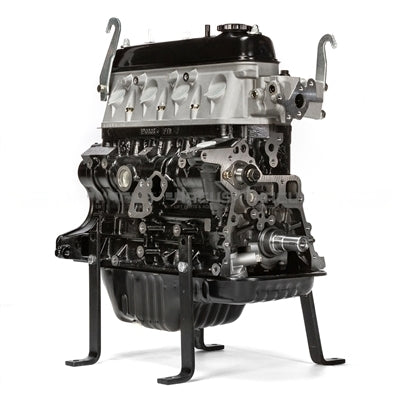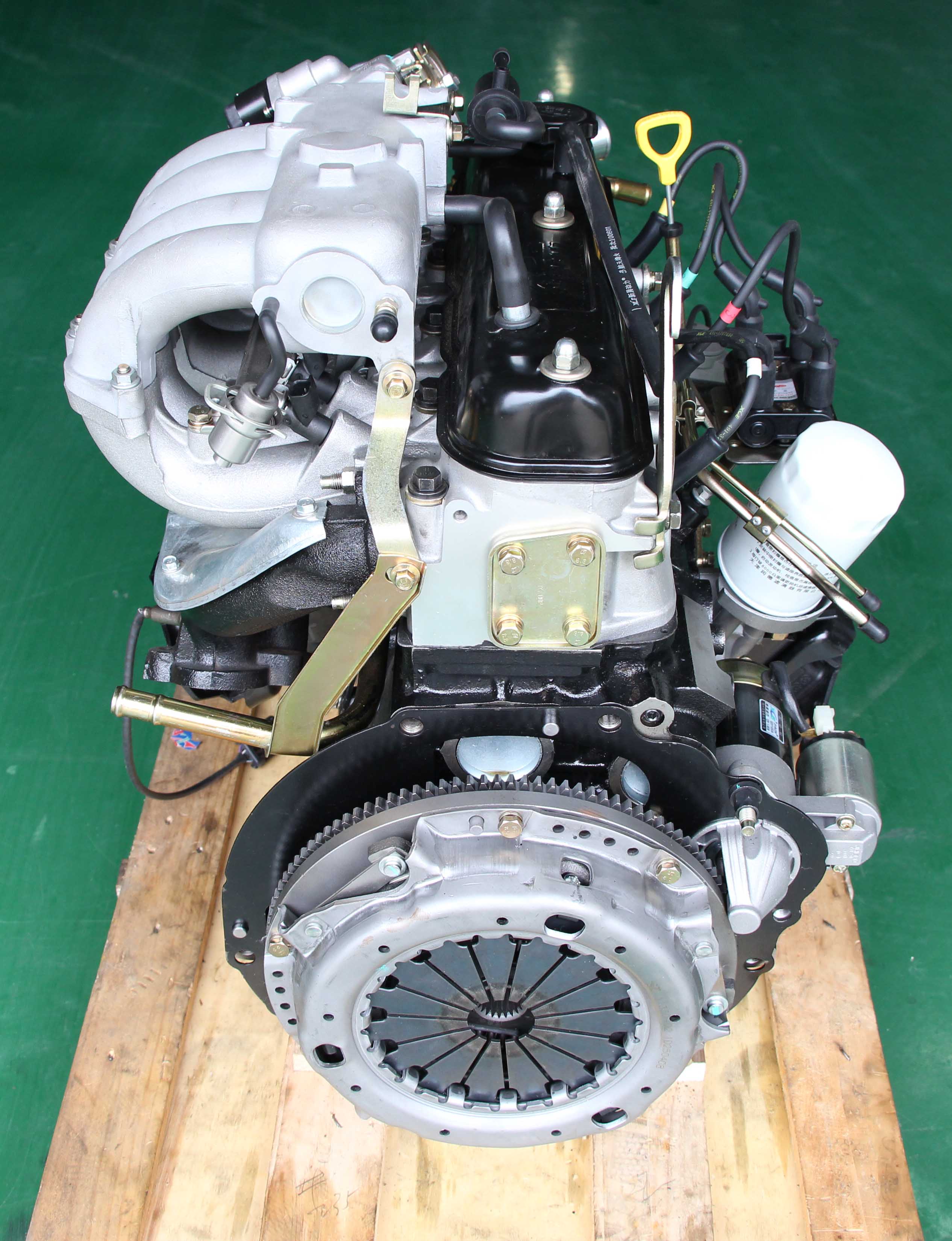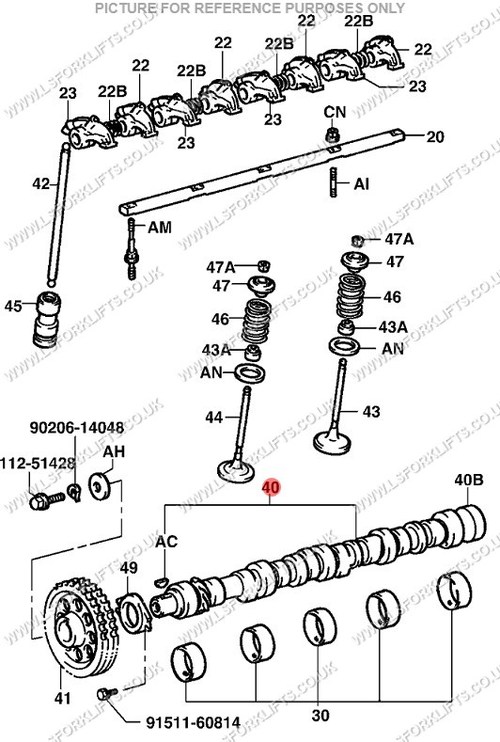How the 4Y Engine Compares to Other Engines in Terms of Fuel Efficiency
Checking Out the Numerous Types of Engine: Which One Fits Your Needs?
In the quest to identify the most ideal engine type for your specific requirements, it is vital to assess the distinctive qualities and advantages of each choice offered. Inner burning engines remain to control because of their reliability, while electric engines are getting grip for their sustainability. Hybrid engines use a versatile concession, and diesel engines stand out for their power popular applications. Additionally, different gas engines present innovative services, albeit with particular constraints. Recognizing your top priorities will certainly contribute in this decision-making procedure, bring about an expedition of elements that might affect your choice.

Internal Combustion Engines
Internal burning engines (ICEs) are the backbone of contemporary transport, powering a large range of automobiles from vehicles to airplanes. These engines operate the concept of converting fuel right into mechanical energy via a collection of controlled surges within a combustion chamber. One of the most usual kinds of ICEs consist of gas engines, diesel motor, and rotary engines, each designed to meet particular performance and efficiency demands.
Gasoline engines commonly use spark ignition, while diesel motor count on compression ignition, causing unique distinctions in fuel effectiveness and power result (4y engine). Rotary engines, or Wankel engines, offer a compact design and smooth procedure, yet are less typically used in mainstream applications
ICEs have undertaken significant innovations in innovation, including the intro of turbocharging and fuel shot systems, which boost overall effectiveness and efficiency. Regardless of their performance enhancements, ICEs encounter raising analysis due to their ecological effect, especially relating to greenhouse gas discharges.
Electric Engines
As worries regarding environmental sustainability and fossil fuel dependency grow, electric engines have become an engaging option to interior combustion engines. These engines utilize electric motors powered by batteries or fuel cells, providing a cleaner and much more reliable motive powers.
Among the key benefits of electrical engines is their lowered exhausts. Unlike standard engines that burn fossil gas, electric engines produce absolutely no tailpipe emissions, considerably decreasing air pollution and adding to enhanced public health and wellness. Furthermore, the performance of electrical motors usually goes beyond that of inner combustion engines, converting a greater percentage of power from the power resource into functional energy for movement.
Electric engines are also notable for their silent procedure, making them suitable for city environments. 4y engine. The simpleness of their style leads to fewer moving parts, which can cause decreased maintenance costs and enhanced reliability gradually
Nonetheless, difficulties remain, consisting of battery production impacts, billing infrastructure, and variety limitations. In spite of these difficulties, the growing financial investment in electrical car modern technology and sustainable power resources points towards a promising future for electric engines, placed to play a vital role in the change toward lasting transport.
Hybrid Engines
Blending the benefits of both electric and traditional internal combustion engines, hybrid engines represent a versatile solution in the mission for reliable and lasting transportation. These engines combine a gas or diesel motor with an electrical motor, enabling improved gas performance and reduced discharges contrasted to standard vehicles.
Crossbreed engines run in several settings, using the electric motor for low-speed driving and the inner combustion engine for higher rates or when more power is required. This dynamic procedure not only boosts fuel economic situation however additionally adds to a smoother driving experience. Regenerative braking is another essential attribute, recording power typically lost throughout stopping and rerouting it to charge the battery.

As consumers progressively prioritize eco-friendliness, hybrid engines stand out as a sensible option, supplying a reliable equilibrium of efficiency, performance, and ecological responsibility. This adaptability makes them suitable for city commuting and long-distance traveling alike.
Diesel Engines
Efficiency and power are trademarks of diesel engines, which have actually long been favored for their effectiveness and fuel economy. These engines operate the principle of compression ignition, where air is pressed to a heat prior to fuel is infused, igniting it without the demand for ignition system. This procedure allows diesel engines to attain higher thermal performance compared to gasoline engines, equating into much better gas mileage and reduced carbon dioxide discharges.
Diesel motor are particularly fit for heavy-duty applications such as trucks, buses, and industrial equipment, where torque and resilience are vital. Their design usually consists of stronger components to stand up to the greater pressures generated during procedure, causing longer life span and decreased maintenance expenses.

Alternate Fuel Engines
While diesel engines have long dominated the landscape of durable source of power, different gas engines are gaining traction as viable alternatives for a much more sustainable future. These engines utilize a variety of fuels, such as compressed gas (CNG), hydrogen, ethanol, and gas, aiming to lower greenhouse gas exhausts and reliance on nonrenewable fuel sources.
One substantial benefit of alternate fuel engines is their potential see here now to lower carbon impacts. For example, CNG engines give off fewer contaminants compared to typical diesel engines, making them suitable for metropolitan transit systems and fleets looking for to enhance air top quality. Ethanol, originated from biomass, not just reduces discharges but likewise sustains agricultural economic situations.
Hydrogen fuel cells look what i found stand for an innovative development in this world, offering zero-emission power via a chemical response in between hydrogen and oxygen. Nevertheless, obstacles such as infrastructure advancement and manufacturing costs stay challenges to prevalent adoption - 4y engine.
Final Thought
Finally, selecting the suitable engine kind requires mindful factor to consider of specific requirements and preferences. Interior burning engines supply reliability, while electric engines prioritize sustainability and decreased upkeep. Crossbreed engines incorporate the advantages of both, enhancing effectiveness, whereas diesel engines give superior power and torque for heavy-duty applications. Alternative fuel engines present green alternatives, albeit with potential infrastructure obstacles. Ultimately, a comprehensive assessment of driving practices and environmental values will facilitate an informed decision concerning engine selection.
Hybrid engines offer a versatile concession, and diesel engines stand out for their power in requiring applications. The most usual kinds of ICEs consist of gas engines, diesel engines, and rotary engines, each developed to satisfy certain efficiency and performance needs.
Unlike traditional engines that burn fossil fuels, electric engines create no tailpipe exhausts, dramatically decreasing air contamination and adding to boosted public wellness.Crossbreed engines run in several settings, making use of the electrical motor for low-speed driving and the inner combustion engine for greater speeds or when even more power is required. Hybrid engines combine the benefits of both, enhancing performance, whereas diesel engines supply exceptional power and torque for sturdy applications.